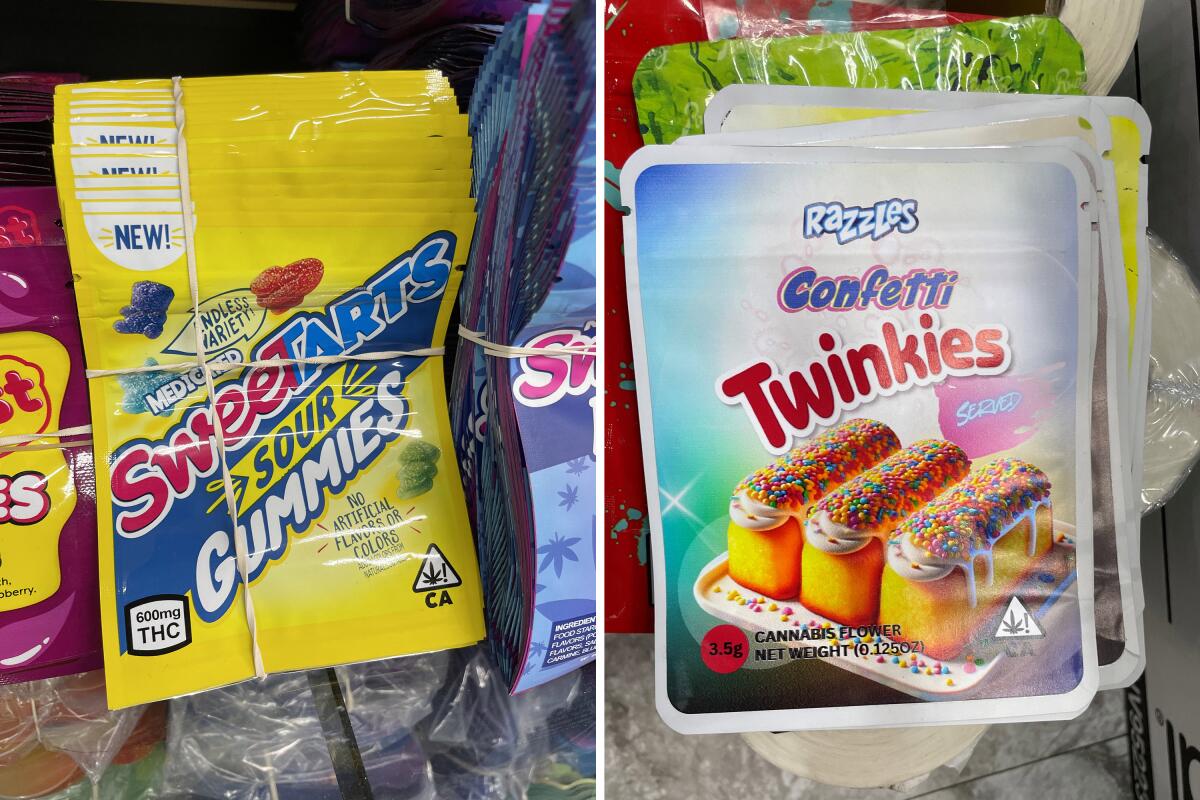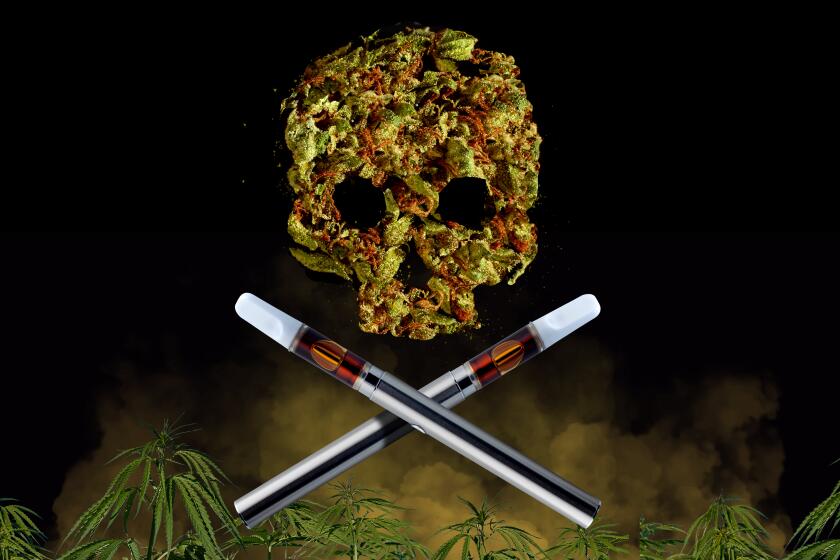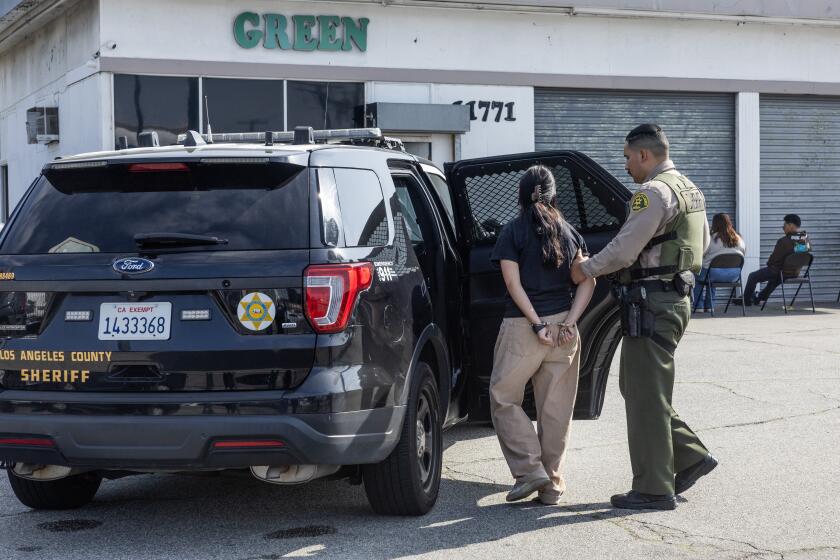California seizes 2.2 million illicit cannabis packages designed to look like candy, sweets

- Share via
The packaging discovered in downtown Los Angeles businesses featured an array of confectionery creations, each advertised with a THC twist.
The problem? The plastic containers had a forged California marijuana seal, giving would-be purchasers the false impression that the products inside had been vetted by the state, officials said.
In all, the state Unified Cannabis Enforcement Taskforce seized more than 2.2 million of the illegal packages during a sting operation targeting 11 businesses in the Toy District on July 17, according to state officials.
“California is committed to supporting our safe and legal cannabis market. We will not tolerate criminal activity that undermines the legal market, especially when it puts children at risk,” Gov. Gavin Newsom said in a statement. “This successful operation in the Toy District reinforces our commitment and sends a clear warning to criminals choosing to operate outside the safer legal industry.”
The operation was focused on storefronts that manufacture and sell bulk packaging for use in the cannabis black market, officials said.
An L.A. Times/WeedWeek investigation finds alarming levels of pesticides in cannabis products at dispensaries across the state
The packages seized in the sweep were empty, but designed to mimic popular food and candy, including Sweet Tarts sour gummies and Twinkies adorned with rainbow sprinkles, which officials said could make them attractive to children. Such packages would not be permitted in the legal marijuana market.
“One of the really important things about this operation is that it specifically targets packaging that just throws all the [state] standards out the window, and in turn, threaten consumers and honestly, appeals to youth,” said Nicole Elliott, director of the state Department of Cannabis Control.
The seized packaging is worth nearly $500,000, said Tamma Adamek, a spokesperson for the California Department of Tax and Fee Administration.
In addition to the contraband packages, the task force also confiscated 31 banker’s boxes and garbage bags filled with cannabis and 32 boxes and bags of unregulated cigarettes and other tobacco products.
Under state law, cannabis goods must be labeled to ensure consumers know what they are buying and to prevent products from being misused. Sellers are required to have packaging that is child-resistant, resealable and opaque if it’s an edible product. The vetted products feature a marijuana leaf symbol and an exclamation mark inside a triangle.
But the illegal weed market has become privy to this, and some are illegally using packaging with the label to sell black market products, said California Department of Tax and Fee Administration Director Nick Maduros.
Unlicensed shops remain a common sight in commercial districts across L.A. County, but 125 miles south the same problem has essentially been solved.
“There is a lot of counterfeit product out there in the state, which makes it even harder for consumers to know what they’re buying and whether what they’re buying has been produced lawfully, is being sold lawfully and has been tested,” Maduros said.
The proliferation of such products also negatively affects licensed businesses who pay taxes and follow state regulations, he added.
To legally sell packaging marked with the California seal businesses have to be licensed with the Department of Cannabis Control or have invoices from a cannabis business licensed by the department.
The sting operation was the first conducted by the task force that focused on cannabis packaging. The passage of Assembly Bill 1126, which went into effect this year, allows the state to seize such material.
“I think this is just the start of what we have to do to combat this problem,” Maduros said.
More to Read
Sign up for Essential California
The most important California stories and recommendations in your inbox every morning.
You may occasionally receive promotional content from the Los Angeles Times.













